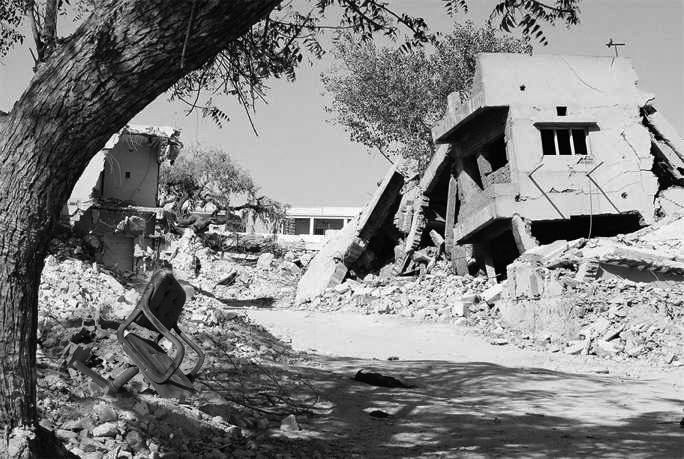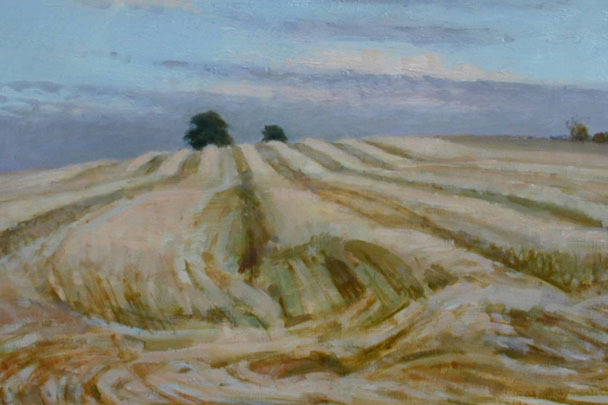Of course mistakes were made. For that we are truly sorry. It was never our intention. We had a plan, a strategy even. It was all about winning hearts and minds. Somewhere along the line mistakes were made. The consequences were indeed unfortunate but were, we can assure you, never part of our intentions.
Few would disagree that action was needed. The situation was dire and order needed to be restored. We thought that order would be welcomed, would be the key to winning hearts and minds. We would not wish to suggest that we saw this as a simple task, we always knew that it would be hard to achieve quickly. Yet order was what was needed before any hope of normality could be considered. We're certain that everyone was agreed on that point.
Looking back now there were things that we would have done differently.
 We thought long and hard about the best way to achieve order and win over hearts and minds. We had tried this before, many times. Our strategy always seems to be about winning hearts and minds. The problem always comes down to the matter of implementation. That's where it seems to have gone wrong in the past and we were keen that this time we wouldn't repeat the same errors.
We thought long and hard about the best way to achieve order and win over hearts and minds. We had tried this before, many times. Our strategy always seems to be about winning hearts and minds. The problem always comes down to the matter of implementation. That's where it seems to have gone wrong in the past and we were keen that this time we wouldn't repeat the same errors.We thought at first of setting up dialogue, of using open discussion to understand the root cause of the disorder and work towards a reasoned solution. We thought that, through this, we would come to understand them better and they would come to understand us. With understanding we were sure that common ground could be found and progress made towards instilling order. Unfortunately we couldn't speak their language and we had, mistakenly as it turned out, deported all of our translators. We were suspicious of them and their ability to talk the language of others. We had taken steps to remove them before we fully understood their usefulness in helping us win hearts and minds. We now recognise that this was a mistake.
 It was suggested at this point that we set up observation posts on the borders to watch them and their disorder. We were going to observe what they were doing and try to understand what it was that they were so unhappy about. We thought that if we knew what it was that they wanted, we could package it up and airdrop it in. We could then return to our observation posts and see if this calmed them and if their hearts and minds were won over by our generosity. We began to construct our observation towers. We ordered several thousand pairs of binoculars and some telescopes also. Unfortunately they seem to have mistaken our towers for machines of war and took to burning them down when we were not looking or when we'd gone to fetch some more binoculars. We wished that we knew their words for observation towers so that we could have labelled them more clearly.
It was suggested at this point that we set up observation posts on the borders to watch them and their disorder. We were going to observe what they were doing and try to understand what it was that they were so unhappy about. We thought that if we knew what it was that they wanted, we could package it up and airdrop it in. We could then return to our observation posts and see if this calmed them and if their hearts and minds were won over by our generosity. We began to construct our observation towers. We ordered several thousand pairs of binoculars and some telescopes also. Unfortunately they seem to have mistaken our towers for machines of war and took to burning them down when we were not looking or when we'd gone to fetch some more binoculars. We wished that we knew their words for observation towers so that we could have labelled them more clearly.
We felt that this was a setback and turned our minds to other tactics. For a while we decided to ignore them in the hope that, when they saw that we had no interest in them, they would calm down and return to living normal lives. We hoped that if we ignored them hard enough they might become united in their curiosity. Perhaps they would send us our translators back to try to find out why we were ignoring them. We would use that opportunity to laugh with them about how we were just doing it so that they would be calm again and that we really didn't want to ignore them, just understand them a bit more. We thought they might suddenly see the humour of the situation and we would all become friends and discuss it over coffee somewhere nice.
It was at this point, before we'd managed to initiate the ignoring, that some mistake was made. We still don't know how it happened and whether the fault lies with an individual or represents some systemic failure. We assure you that this matter is being thoroughly investigated and, if we find the answer, we will look to make sure that these mistakes do not happen again. Let us make this very clear, we still had many options to explore in trying to win hearts and minds. We were still confident of finding a way. If the ignoring didn't work we had considered inviting them over for holidays so that they could see that we were really quite nice. We'd thought of offering to help them build new homes, schools and hospitals to make up for those that had been destroyed in the disorder. We'd even thought of offering free tennis lessons or preferential trading terms. We had many options to consider.
There were some, in those days, who thought our approaches too circumspect, too soft. Some doubted whether such measures would ever bring about the order that we all agreed was needed. We considered, at this point, a more direct approach. We thought about sending in teachers and doctors. We thought about sending in some aid workers – even though we did not entirely understand what an aid worker was or what they actually did. These all seemed like measures that would support our strategy of winning hearts and minds. Unfortunately, without the first semblance of order these people felt a little reticent about being sent in, even with the offer of free tennis lessons becoming available in wave two of the plan. We considered, as an alternative, sending in peace-keepers as they seemed exactly the sort of person that was needed. Firm, yet intelligent people imbued with a desire to find, instil and protect peace.
Unfortunately, while we were considering these options, somewhere along the line the decision was made to send in the idiots. That’s when things started to go wrong. That’s when the fighting really started in earnest. The trouble with sending in the idiots is that they tend to take guns in with them and a certain outlook on life that doesn’t recognise the notion of winning hearts and minds. The idiots seemed enthusiastic, we will freely admit to that. However, they were inclined to exercise their enthusiasm with bullets and missiles and massive air superiority and this tended to inflame the disorder rather than quell it in any way.
 We really are truly sorry for the way that this has turned out. The most disappointing aspect of this was the fact that this has happened before and we appear to have made the same mistake again. We always have a strategy of winning hearts and minds but somehow we always end up sending in the idiots.
We really are truly sorry for the way that this has turned out. The most disappointing aspect of this was the fact that this has happened before and we appear to have made the same mistake again. We always have a strategy of winning hearts and minds but somehow we always end up sending in the idiots.














